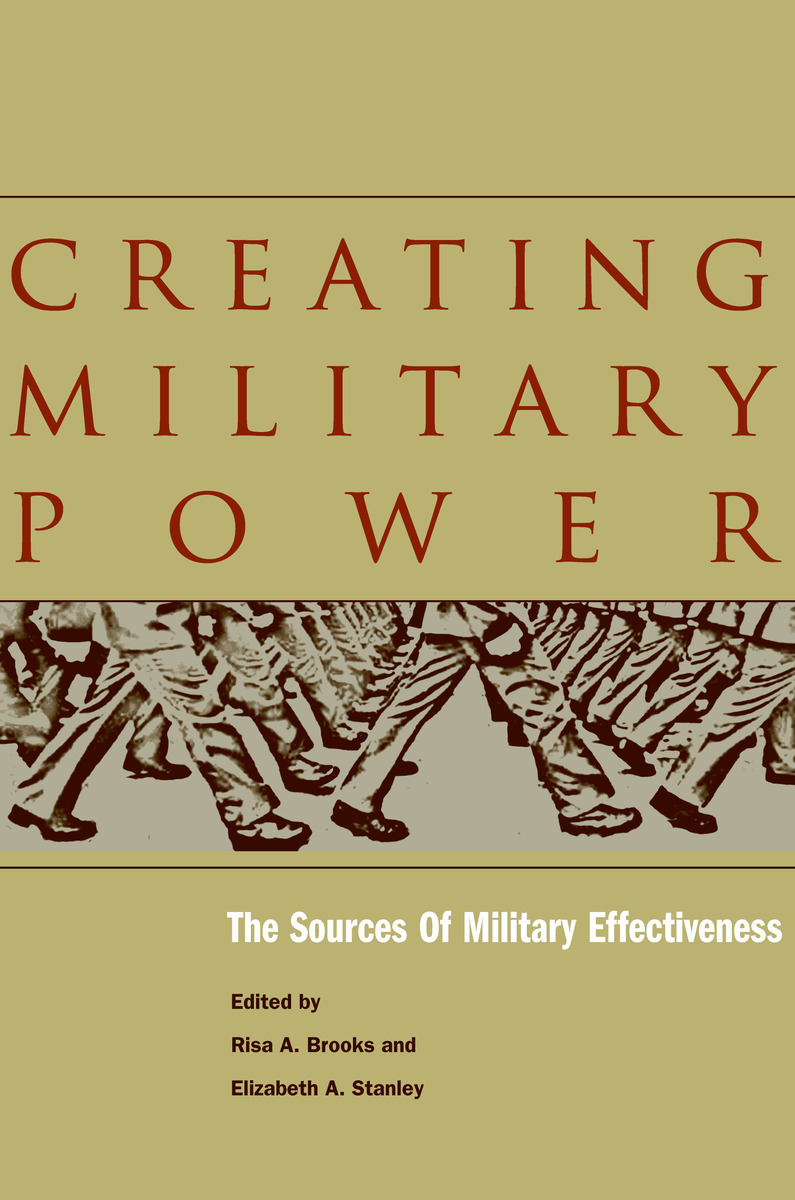 Creating Military Power examines how societies, cultures, political structures, and the global environment affect countries’ military organizations. Most examinations of military power focus on material resources, such as population size, technological and industrial base, and GNP. This edited volume from Dr. Risa Brooks and Dr. Elizabeth Stanley takes a more expansive view.
Creating Military Power examines how societies, cultures, political structures, and the global environment affect countries’ military organizations. Most examinations of military power focus on material resources, such as population size, technological and industrial base, and GNP. This edited volume from Dr. Risa Brooks and Dr. Elizabeth Stanley takes a more expansive view.
Wealth, technology, and human capital certainly matter for a country’s ability to create military power. Equally important, however, are the ways a state uses those resources—and this depends on the political and social environment in which military activity takes place. Thus, states’ cultures, social structures, and political institutions—as well as the global environment—often affect how states organize and prepare for war—and whether they’ll be effective in battle.
Get A Copy Today
What People Are Saying
“This book’s sensible premise is that a state’s military power—often measured by gross national product, industrial capacity, population size, number of troops, and arsenal—does not necessarily determine military effectiveness…. This is an excellent set of essays that specialists on military-security issues will read with much profit. Highly recommended.”
“Rigorous social science too often treats military power as the epiphenomenon of economic or technological resources. This impressive volume helps rectify that common mistake. It explores and details how what really matters—the actual effectiveness of militaries—depends on complex social, political, diplomatic, and organizational underpinnings.”
“Creating Military Power is creative and rigorous, attentive to historical detail, and concerned with policy implications. It will undoubtedly be read with great enthusiasm by specialists on international security in both the academy and think tanks.”
You must be logged in to post a comment.